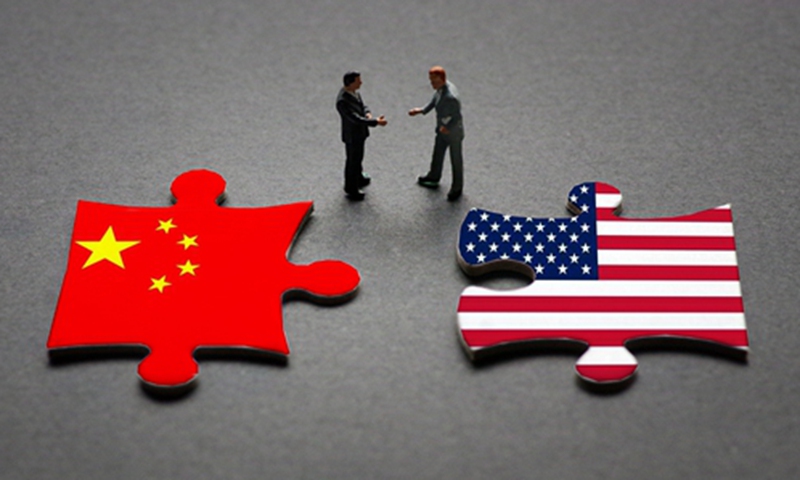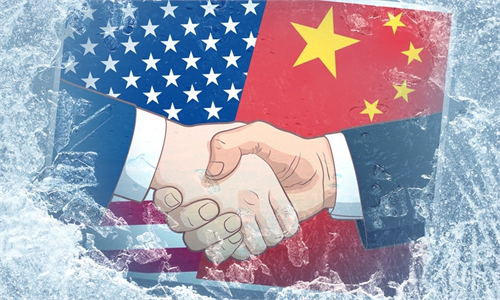
Photo: IC
China and the US have confirmed a high-level strategic dialogue between Chinese top diplomat Yang Jiechi, Foreign Minister Wang Yi and US Secretary of State Antony Blinken and National Security Advisor Jake Sullivan next week. This will be the first senior-level meeting between the two countries since Yang met with then US secretary of state Mike Pompeo in June 2020. Hence, the meeting has drawn great attention since some sources revealed it.Some observers in the US said that Washington has fully communicated with its allies and consolidated its alliance system. Therefore, the meeting with Beijing would be an engagement from a position of strength. The US side has also released such a message: It hopes China will make change on issues that concern the US; otherwise, the dialogue would not have tangible outcomes and following dialogues would be meaningless.
It must be pointed out that both sides' intent is indispensable for the meeting to be held. It's not a unilateral wish. China has clarified its long-term attitude of strengthening China-US engagements. Such an attitude has formed a confluence with the US' current needs to construct its China policy, leading to the Alaska meeting.
The US side should abandon the mentality of them having special advantages in the dialogue. Mutual respect will be more conducive to reaching some outcomes in the meeting.
The US has emphasized the strength of its alliance system. But this factor is exaggerated. China doesn't have so serious disputes with US allies that they have to resort to severe conflicts for a settlement. The differences between China and US allies are determined by diversity of the world. And both sides are willing and able to manage these differences. Allies of Washington are more motivated to cooperate with Beijing than to contain China with the US. As a result, if some in the US want to frighten China with its alliance system, it won't work.
To ask China to change its policy of governing Xinjiang and stabilizing Hong Kong amounts to interference in China's internal affairs and cannot be accepted by Chinese society. Any exchange of ideas at any time over these issues is only a form of communication to help the US understand the truth and reduce misunderstanding and miscalculation.
China and the US are major powers. Committed to changing each other, especially through pressure, is dangerous. It is reasonable for China and the US to accept their differences. The purpose of engagement should be to manage differences, seek common interests, and promote cooperation where both sides can and should. Through these efforts, the two countries should create a framework for China-US relations featuring coexistence and non-confrontation, allowing time to smooth over differences, easing conflicts and ensuring that China-US competition is conducted in a peaceful manner.
Talking about strategic mutual interests can be difficult at a time when some Americans still have a serious zero-sum mentality. But competing in a peaceful and rules-based way is probably the biggest common denominator between China and the US. It cannot be the reality or the future of China-US relations that one side dominates the communication, and one side sets the questions while the other answers.
We feel that the US still does not understand China, and it has misread the nature of China's system and its goal of rejuvenation. The US has given what is happening in China and frictions with its neighbors over border issues a high and illusory external directive. In addition, the traditional culture and the historical experience of the US do not support the vision of "win-win" competition among great powers. Washington is too used to giving orders. They should get used to listening and not refuse to try to solve fundamental problems in a compromising and mutually beneficial way.


